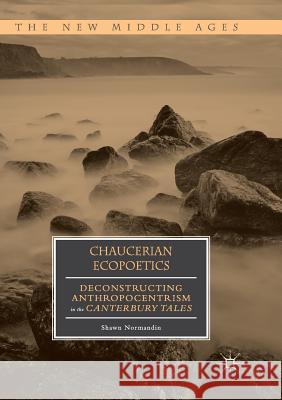Chaucerian Ecopoetics: Deconstructing Anthropocentrism in the Canterbury Tales » książka
topmenu
Chaucerian Ecopoetics: Deconstructing Anthropocentrism in the Canterbury Tales
ISBN-13: 9783030080204 / Angielski / Miękka / 2019 / 226 str.
Kategorie:
Kategorie BISAC:
Wydawca:
Palgrave MacMillan
Seria wydawnicza:
Język:
Angielski
ISBN-13:
9783030080204
Rok wydania:
2019
Wydanie:
Softcover Repri
Numer serii:
000016390
Ilość stron:
226
Waga:
0.29 kg
Wymiary:
21.01 x 14.81 x 1.27
Oprawa:
Miękka
Wolumenów:
01
Dodatkowe informacje:
Wydanie ilustrowane











